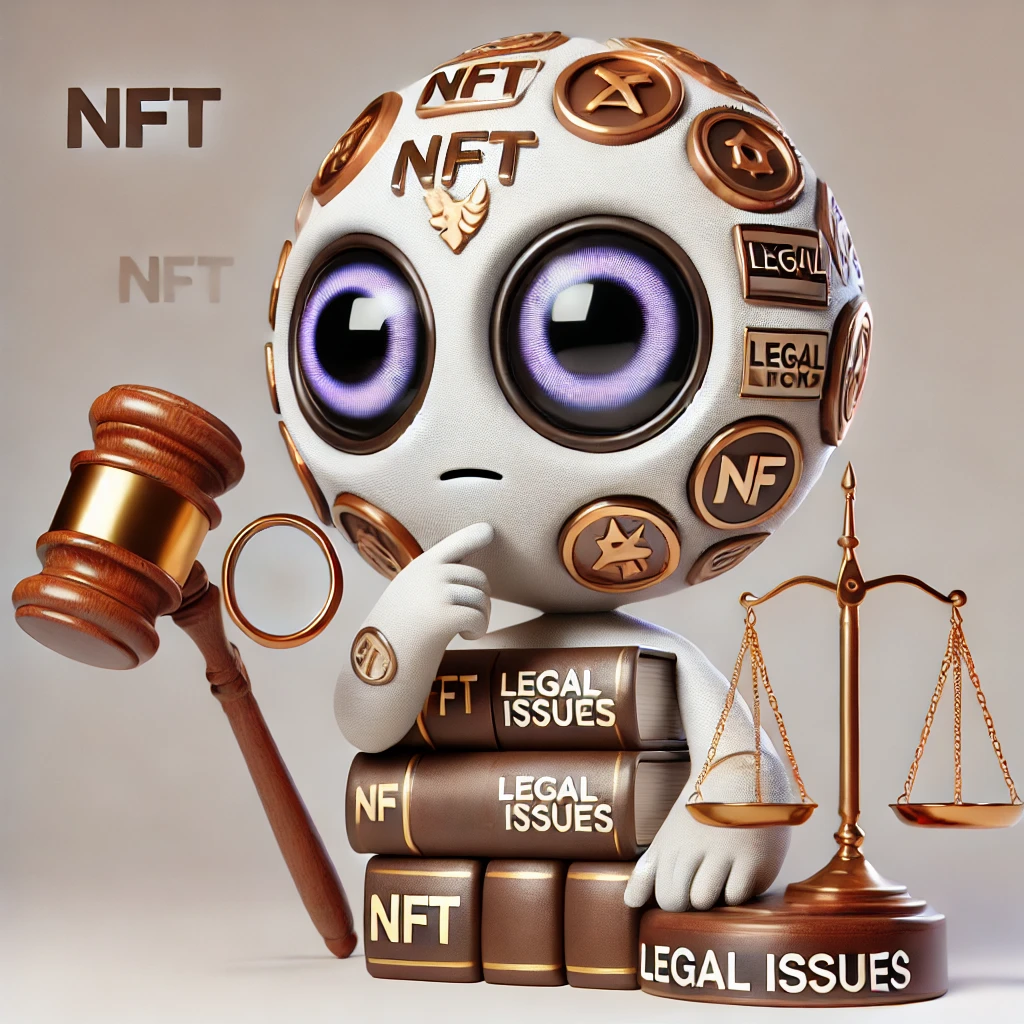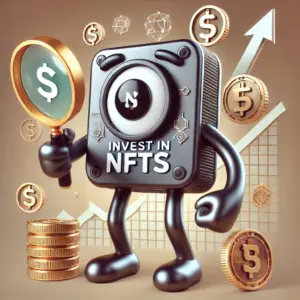The world of NFTs, or Non-Fungible Tokens, has exploded in recent years, captivating artists, collectors, and investors alike. This digital revolution has introduced a new paradigm for ownership and value, but with it comes a complex web of legal implications that require careful navigation. From intellectual property and copyright to taxation and regulatory uncertainty, the legal landscape surrounding NFTs is constantly evolving. This comprehensive guide delves into the key legal issues surrounding NFTs, providing insights for creators, collectors, and anyone looking to understand the legal complexities of this rapidly evolving space.
Table of Contents:
Understanding NFTs and Their Legal Implications
NFTs are unique digital assets stored on a blockchain, serving as proof of ownership for digital or physical items like art, music, videos, collectibles, and even real estate. While NFTs are often associated with digital art, their applications extend far beyond that, impacting various industries and giving rise to a complex array of legal questions.
The Legal Nature of NFTs
The legal nature of NFTs is still being debated. Some argue that NFTs are essentially digital certificates of authenticity, while others see them as digital property with rights of ownership akin to traditional assets. This debate is crucial, as it determines the legal framework applicable to NFTs – governing their transfer, ownership, and potential liability.
Intellectual Property and Copyright
The intersection of NFTs with intellectual property (IP) is a major point of contention. The ownership of the underlying asset (e.g., artwork) is separate from the ownership of the NFT itself. A creator can sell an NFT representing their artwork without relinquishing their copyright. However, the buyer of the NFT may have certain rights to use, display, or potentially resell the artwork, depending on the specific terms of the sale and the chosen blockchain platform.
The Role of Blockchain and Smart Contracts
NFTs are built on blockchain technology, which offers transparency, immutability, and verifiable ownership. This decentralization raises questions about the legal enforceability of smart contracts that govern NFT transactions. While some jurisdictions recognize blockchain and smart contract technology, others are still grappling with their legal implications.
Key Legal Issues Surrounding NFTs
Navigating the world of NFTs requires a keen understanding of the intricate legal issues surrounding them. Here are some of the most prominent challenges and considerations:
1. Intellectual Property Rights and Copyright
The ownership of the underlying digital or physical asset linked to an NFT is distinct from the ownership of the NFT itself. Creators must carefully consider the implications of:
- Licensing and granting usage rights to NFT buyers
- Managing royalties for secondary market sales
- Ensuring proper attribution and avoiding copyright infringement
NFT buyers, on the other hand, must be aware of the rights and limitations associated with owning an NFT. Understanding the differences between:
- Ownership of the NFT (proof of ownership)
- Ownership of the underlying asset (copyright, trademark)
- Usage rights granted by the creator
2. Trademark Law and NFTs
NFTs can be used to represent trademarks, adding a new dimension to trademark law. Considerations include:
- The use of trademarks in NFT descriptions, artwork, and marketing
- The potential for dilution or infringement of trademarks through unauthorized NFTs
- The role of NFTs in brand authentication and anti-counterfeiting efforts
3. Regulatory Uncertainty and Legal Framework
The nascent nature of NFTs has led to regulatory uncertainty across various jurisdictions. This ambiguity presents challenges for creators, collectors, and businesses operating in the NFT space, creating a need for:
- Clarity on taxation of NFTs (both for creators and collectors)
- Regulations surrounding the issuance and trading of NFTs
- Guidelines for consumer protection in NFT transactions
4. Securities Law and NFT Offerings
The intersection of NFTs with securities law presents potential legal pitfalls. Projects that involve the sale of NFTs that resemble securities, such as fractional ownership of an asset or participation in profits, can trigger securities regulations. This highlights the importance of:
- Proper disclosure and registration requirements for NFT offerings
- Compliance with relevant securities laws to avoid legal issues
- Seeking legal counsel to determine the appropriate legal framework
5. Digital Asset Security and Fraud Prevention
The decentralized nature of NFTs raises concerns about security and fraud. The blockchain ecosystem is prone to vulnerabilities, such as phishing attacks, smart contract flaws, and rug pulls (projects that disappear with investor funds). Therefore, there’s a need for:
- Strong security measures to protect NFT wallets and assets
- Due diligence before investing in NFT projects
- Awareness of scams and fraud risks in the NFT market
6. Legal Disputes and Enforcement
Resolving legal disputes involving NFTs can be challenging due to the cross-border nature of blockchain technology and the lack of established legal precedents. Potential disputes can arise from:
- Copyright infringement
- Trademark violation
- Fraudulent NFT sales
- Breach of contract related to NFT transactions
Navigating these legal complexities often requires expert legal counsel familiar with the intricacies of blockchain technology and NFT transactions.
Navigating Legal Issues: Best Practices for Creators and Collectors
Understanding the legal landscape is critical for success in the NFT space. Here are some practical steps creators and collectors can take to mitigate risks and ensure compliance:
For Creators
- Secure Intellectual Property Rights: Thoroughly document and register all copyrights, trademarks, and other relevant IP for your creations. This process will provide legal protection in case of disputes or infringement.
- Craft Clear Licensing Agreements: Define the usage rights granted to buyers of your NFTs. Consider factors like resale rights, commercial use, and attribution requirements. You can use smart contracts to automate licensing terms.
- Understand Taxation Implications: Familiarize yourself with the tax implications of creating and selling NFTs. Seek guidance from tax professionals to ensure compliance with local regulations.
- Stay Informed About Regulatory Developments: Monitor the evolving legal landscape surrounding NFTs and consult with legal professionals to stay abreast of regulatory changes that could impact your work.
For Collectors
- Due Diligence and Research: Before buying an NFT, conduct thorough research on the creator, project, and platform. Understand the copyright and usage rights associated with the NFT and verify the authenticity of the artwork or asset.
- Secure Your NFT Wallet: Use secure wallets and implement strong security measures to protect your NFTs from theft or unauthorized access. Understand the risks associated with different wallet types.
- Be Aware of Scams and Fraud: Recognize potential red flags, such as unrealistic promises, high-pressure tactics, or offers that seem too good to be true. Be cautious of unknown creators or projects without clear transparency.
- Understand Tax Obligations: Educate yourself about the tax implications of owning and trading NFTs. Seek guidance from financial professionals to ensure compliance with tax regulations.
The Future of Legal Issues in the NFT World
As NFTs continue to evolve, the legal landscape surrounding them will undoubtedly become more intricate. Here are some key areas to watch in the future of NFTs and their legal implications:
Emerging Legal Frameworks
Expect a significant focus on developing legal frameworks specifically addressing NFTs. This will involve:
- Establishing clear definitions for NFTs and their legal status.
- Creating regulations for NFT issuance, trading, and consumer protection.
- Addressing the intersection of intellectual property, securities law, and NFTs.
Growing Importance of Smart Contracts
The role of smart contracts in governing NFT transactions will be increasingly critical. Legal frameworks will need to evolve to:
- Ensure the enforceability of smart contracts in different jurisdictions.
- Address potential legal disputes arising from smart contract malfunctions or breaches.
- Define clear legal responsibility for parties involved in smart contract-based NFT transactions.
Increasing Focus on Consumer Protection
As NFTs become more mainstream, consumer protection will become a greater priority. There will be an emphasis on:
- Educating consumers about NFT rights and risks.
- Developing clear guidelines for NFT marketplaces and platforms.
- Establishing mechanisms to prevent fraud and address disputes.
Conclusion
The legal landscape surrounding NFTs is complex and evolving. Understanding the unique legal considerations associated with these digital assets is crucial for creators, collectors, and businesses operating in this space. Navigating the legal issues involves carefully considering intellectual property rights, regulatory uncertainty, security risks, and emerging legal frameworks. By staying informed and taking proactive steps to mitigate risks, participants can embrace the potential of NFTs while maintaining compliance and legal protection.
QA: Frequently Asked Questions on NFT Legal Issues
1. How do NFTs impact Intellectual Property Rights?
NFTs are unique digital assets stored on a blockchain, serving as proof of ownership for digital or physical items like art, music, videos, collectibles, and even real estate. While NFTs are often associated with digital art, their applications extend far beyond that, impacting various industries and giving rise to a complex array of legal questions.
2. Are NFTs considered securities?
The legal nature of NFTs is still being debated. Some argue that NFTs are essentially digital certificates of authenticity, while others see them as digital property with rights of ownership akin to traditional assets. This debate is crucial, as it determines the legal framework applicable to NFTs – governing their transfer, ownership, and potential liability.
3. What are the tax implications of NFTs?
The intersection of NFTs with intellectual property (IP) is a major point of contention. The ownership of the underlying asset (e.g., artwork) is separate from the ownership of the NFT itself. A creator can sell an NFT representing their artwork without relinquishing their copyright. However, the buyer of the NFT may have certain rights to use, display, or potentially resell the artwork, depending on the specific terms of the sale and the chosen blockchain platform.
4. How are NFTs regulated?
NFTs are built on blockchain technology, which offers transparency, immutability, and verifiable ownership. This decentralization raises questions about the legal enforceability of smart contracts that govern NFT transactions. While some jurisdictions recognize blockchain and smart contract technology, others are still grappling with their legal implications.
5. What are the legal risks associated with NFTs?
Navigating the world of NFTs requires a keen understanding of the intricate legal issues surrounding them. Here are some of the most prominent challenges and considerations:
6. How can I protect myself from legal issues when dealing with NFTs?
Understanding the legal landscape is critical for success in the NFT space. Here are some practical steps creators and collectors can take to mitigate risks and ensure compliance:
7. What legal trends should I anticipate in the future of NFTs?
As NFTs continue to evolve, the legal landscape surrounding them will undoubtedly become more intricate. Here are some key areas to watch in the future of NFTs and their legal implications:






